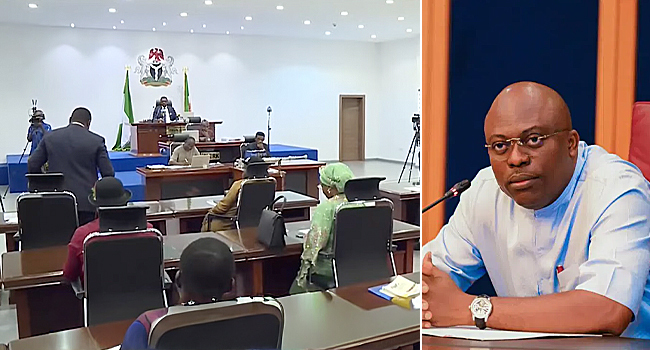President Bola Tinubu’s recent approval of a 15 per cent ad-valorem import duty on petrol and diesel marks a significant policy shift in Nigeria’s downstream oil sector. The move, which took effect following a directive dated October 21, 2025, is aimed at protecting emerging local refineries and aligning fuel import costs with domestic production realities. But it also carries implications for importers, marketers, and the broader economy.
Understanding the Policy
The new duty applies to the cost, insurance, and freight (CIF) value of imported petrol and diesel, essentially the total value of the product at the point of entry into Nigeria. In practical terms, importers will now pay a tariff equivalent to 15 per cent of that value before the product enters the market.
The policy, signed off by Tinubu’s Private Secretary, Damilotun Aderemi, follows a proposal by the Executive Chairman of the Federal Inland Revenue Service (FIRS), Zacch Adedeji. It forms part of what the administration describes as a “market-responsive import tariff framework.” This is a structure intended to promote energy security, boost local refining, and reduce Nigeria’s dependence on foreign exchange for fuel imports.
The Rationale Behind the Move
For years, Nigeria’s fuel market has been caught between two opposing pressures: the high cost of importing refined products and the government’s ambition to develop local refining capacity.
According to Adedeji, the absence of import duties on fuel products has given importers a pricing advantage over local refiners, undermining domestic production just as new refineries, including the Dangote Refinery and several modular plants, are coming onstream.
In his memo to the President, Adedeji argued that “the misalignment between locally refined products and import parity pricing has created instability in the market.” He warned that without regulatory correction, duty-free imports could continue to undercut local producers, discourage investment, and delay Nigeria’s energy transition goals.
The new tariff, therefore, seeks to create a level playing field ensuring that imported fuel does not sell below the cost-recovery threshold for Nigerian refiners.
Impact on Importers and the Market
For importers, the immediate effect of the policy is a higher cost of entry. The 15 per cent duty is expected to raise the landing cost of petrol by an estimated ₦99.72 per litre, pushing the average Lagos pump price to about ₦964.72 per litre ($0.62).
While this represents a modest increase, the government insists it remains competitive compared to regional averages: Senegal ($1.76), Côte d’Ivoire ($1.52), and Ghana ($1.37) per litre.
However, industry analysts warn that the adjustment could squeeze margins for independent marketers, especially those dependent on import supply chains. Import volumes may decline as traders recalibrate operations or pivot toward local sourcing. This shift could gradually reduce Nigeria’s exposure to foreign exchange volatility.
Implications for Local Refining and Energy Security
For domestic refineries, the development is largely positive. By narrowing the price gap between imported and locally refined products, the duty provides a cushion for cost recovery and operational sustainability.
With diesel sufficiency already achieved and petrol refining capacity expanding, the import duty could accelerate Nigeria’s journey toward self-sufficiency in petroleum products. It also aligns with Tinubu’s broader Renewed Hope Agenda, which emphasises fiscal sustainability and industrial growth through energy reform.
Adedeji described the policy as a “strategic lever” to strengthen the naira-based oil economy, operationalise crude transactions in local currency, and ensure stable supply at affordable levels.
The Broader Economic Picture
From a macroeconomic perspective, the policy has both revenue and trade implications.
- Revenue Gains: The FIRS stands to collect significant additional income from the new tariff, bolstering federal revenues amid dwindling oil earnings.
- Trade Realignment: Importers may reduce fuel cargoes, leading to lower foreign exchange outflows and potentially easing pressure on the naira.
- Inflationary Risk: Any increase in fuel prices could feed into transportation and food costs, although government projections suggest the impact will remain within “sustainable thresholds.”
Bottom Line
President Tinubu’s 15 per cent import duty on petrol and diesel represents a calculated trade-off: modest short-term price adjustments in exchange for long-term industrial and fiscal stability.
For importers, it introduces new cost dynamics; for local refiners, it signals protection and opportunity; and for the Nigerian economy, it marks another step toward self-reliance in the energy value chain.
Whether the measure achieves its intended balance, protecting consumers while fostering a competitive domestic market, will depend on effective implementation and the pace of Nigeria’s refining recovery in the months ahead.












